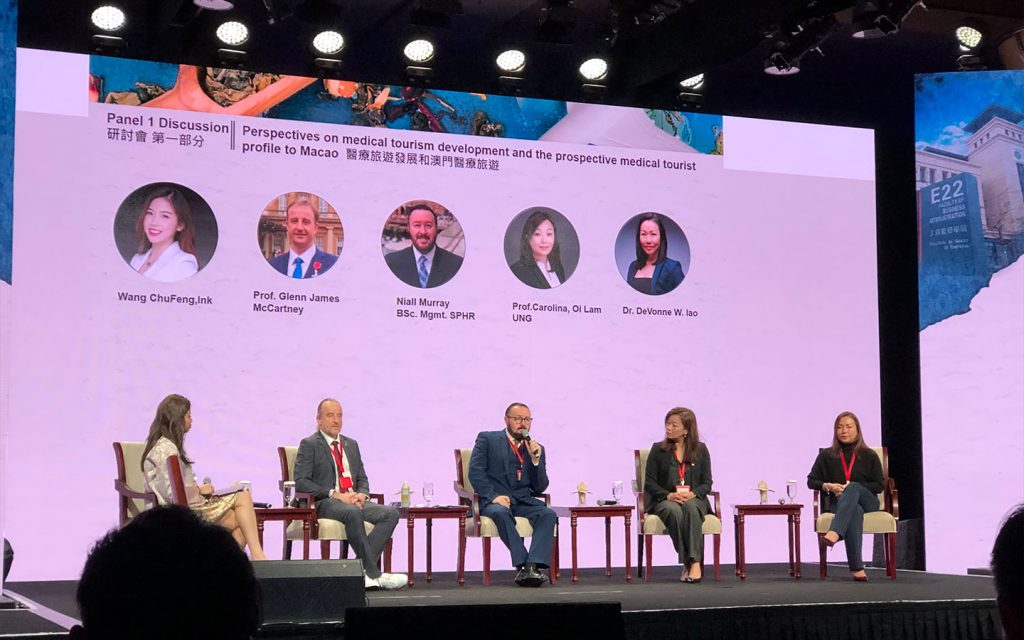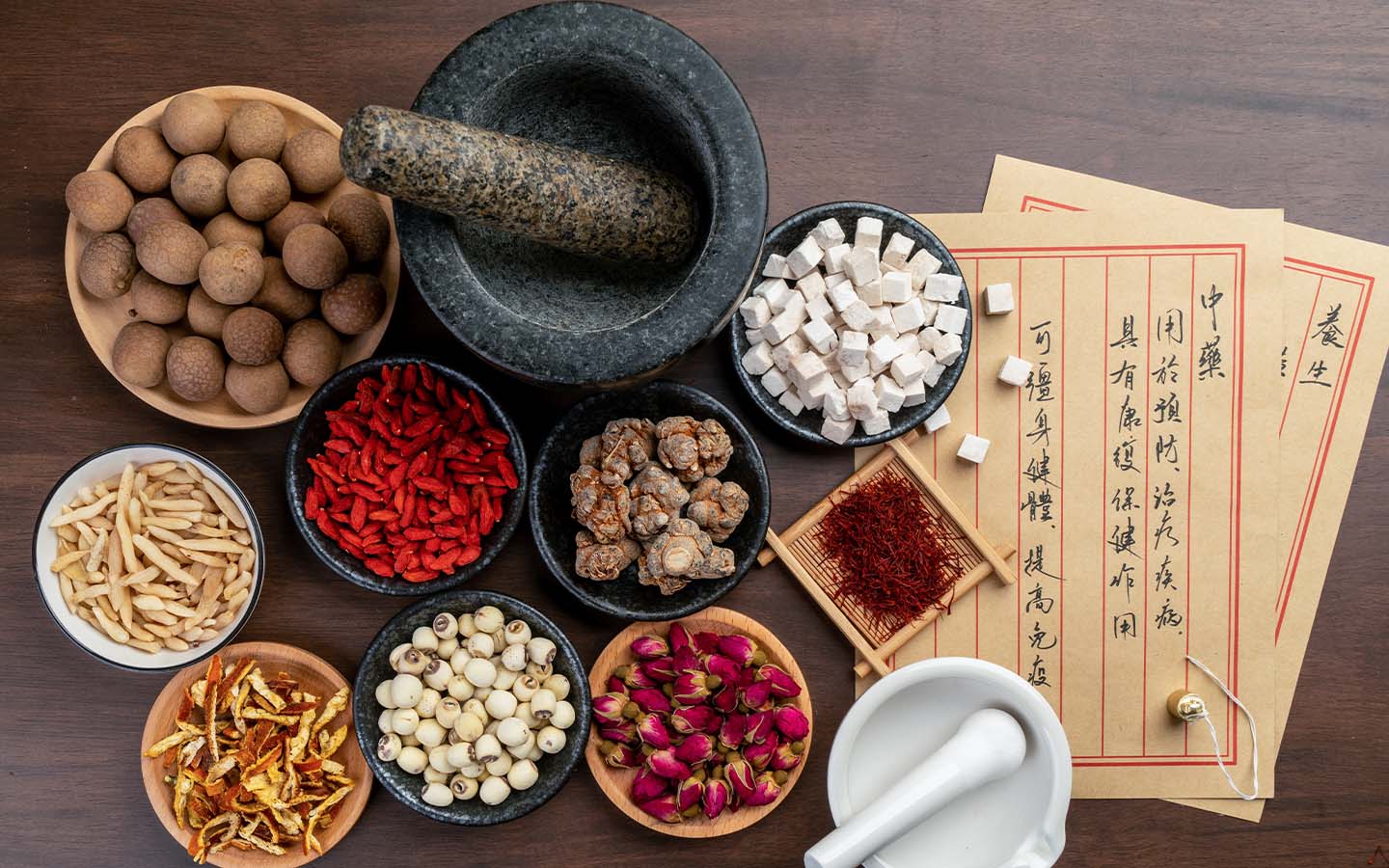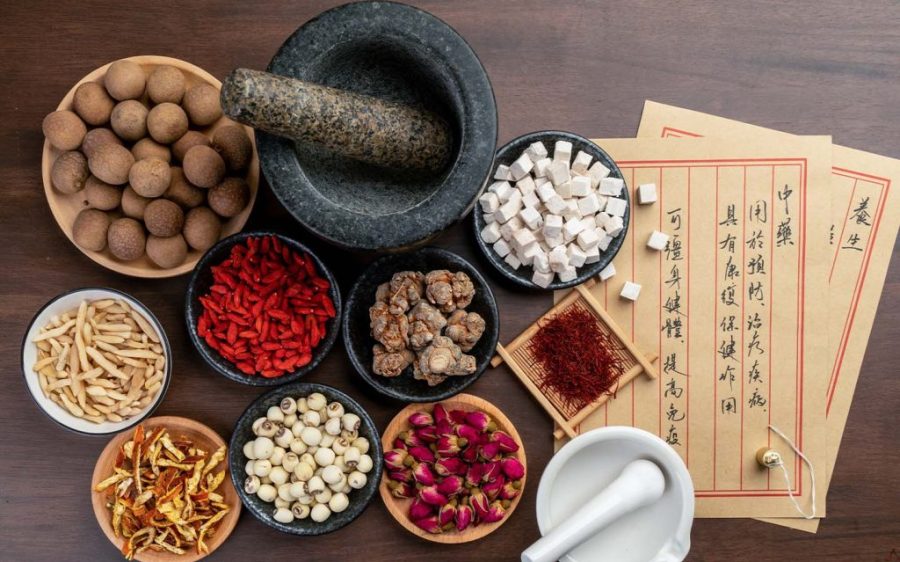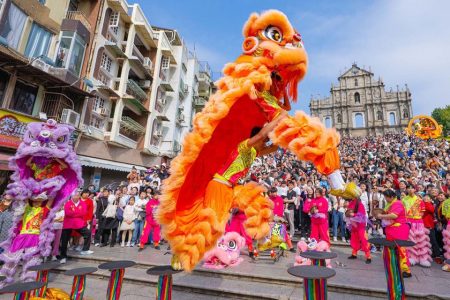At the inaugural Macao Hengqin Medical Tourism Symposium held at the Londoner last Friday, University of Macau associate professor Glenn McCartney said that the conference came about from his 2024 field research, which examined the introduction and role of traditional Chinese medicine (TCM) amid Macao’s bid to develop medical tourism.
Based on the TCM professionals interviewed, the participants emphasised collaboration, particularly among policy makers, business leaders, and other medical specialists within the Greater Bay Area as being a paramount to meeting the policy objective.
[See more: The University of Macau now offers a TCM testing service]
This prompted McCartney, the associate dean of the Faculty of Business Administration at the University of Macao, to reach out to various industry experts with the goal of leveraging the region’s historical familiarity with TCM and understanding how it could complement Macao’s medical tourism ambitions.
“And that’s what brings us here today,” McCartney said, adding “we are here to have a conversation that will hopefully lead to action later on.”
What Macao can learn from the global medical tourism market
Driven by an aging population and rising incomes, the medical tourism market is projected to be worth $36 billion by 2032, according to McCartney’s paper published late last year, highlighting lower costs and shorter waiting periods as key factors contributing to the rise of patients heading outside their home countries for medical treatments.
The Asia Pacific region accounts for an estimated 75 percent of that market, McCartney said, highlighting that “if you have ever travelled to neighbouring Hong Kong or mainland China from Macao to see a specialist, you’re considered a medical tourist.”
The symposium panel of academics and industry professionals highlighted commercial examples across Southeast Asia, notably in Thailand, Singapore, and India, where healthcare related travel has benefited their respective economies by strengthening local tourism industries while attracting the additional revenues that come with it.
[See more: Macao’s medical graduates may struggle to find local jobs, admit health officials]
For Macao, the primary benefit of being a relative latecomer is being able learn from what has, and what hasn’t, worked to facilitate a comprehensive medical tourism industry, noted Niall Murray, chairman of Murray International Group, who identified factors like globally recognised Joint Commission International (JCI) accredited hospitals, upfront pricing, and attractive visa schemes to enhance a medical hub’s reputation.
Murray pointed to Thailand’s Bumrungrad International Hospital as an industry vanguard for integrating medical care and hospitality services, exemplified by the over one million patients from 190 countries that visit the Bangkok facility each year.
“When you walk inside the clinic, you don’t feel like you’re in a hospital, instead, you feel like you’re checking in at a luxury hotel,” he shared, adding, “but I think Macao could do a better job on the hospitality side given our familiarity in the hotel industry.”
Factoring TCM into Macao’s medical tourism

The growth of medical tourism coincides with rising demand for holistic wellness treatments, opening opportunities for alternative therapies like TCM, said Carolina Ung, assistant professor at the Institute of Chinese Medical Sciences at the University of Macau. In addition to historical ties to herbal medicines, Ung said that Macao serves as a modern laboratory for TCM, commenting on the SAR’s focus on drug safety and efficacy through contemporary scientific research to uphold the industry’s reputation.
In 2022, the Macao’s Pharmaceutical Administration Bureau (known by its Portuguese initials ISAF) was established alongside new laws regulating pharmaceutical activities, formalising the process for registering new TCM products and enabling those made in Macao to be used in both the mainland as well as several Portuguese-speaking countries.
[See more: The 2026 Macao Health Survey will launch pilot studies this month]
Despite these advantages, the panellists warned against resting on recent laurels. Macao’s push into medical tourism overlaps with Thailand’s casino bill, essentially pinning an established medical tourism hub with casino-resort ambitions against an established casino-resort economy with medical tourism ambitions.
Thailand’s new bill places greater urgency on Macao to assign a task force to coalesce public and private interest to drive investments, noted the panellists, a message reiterated in the McCartney research paper.






